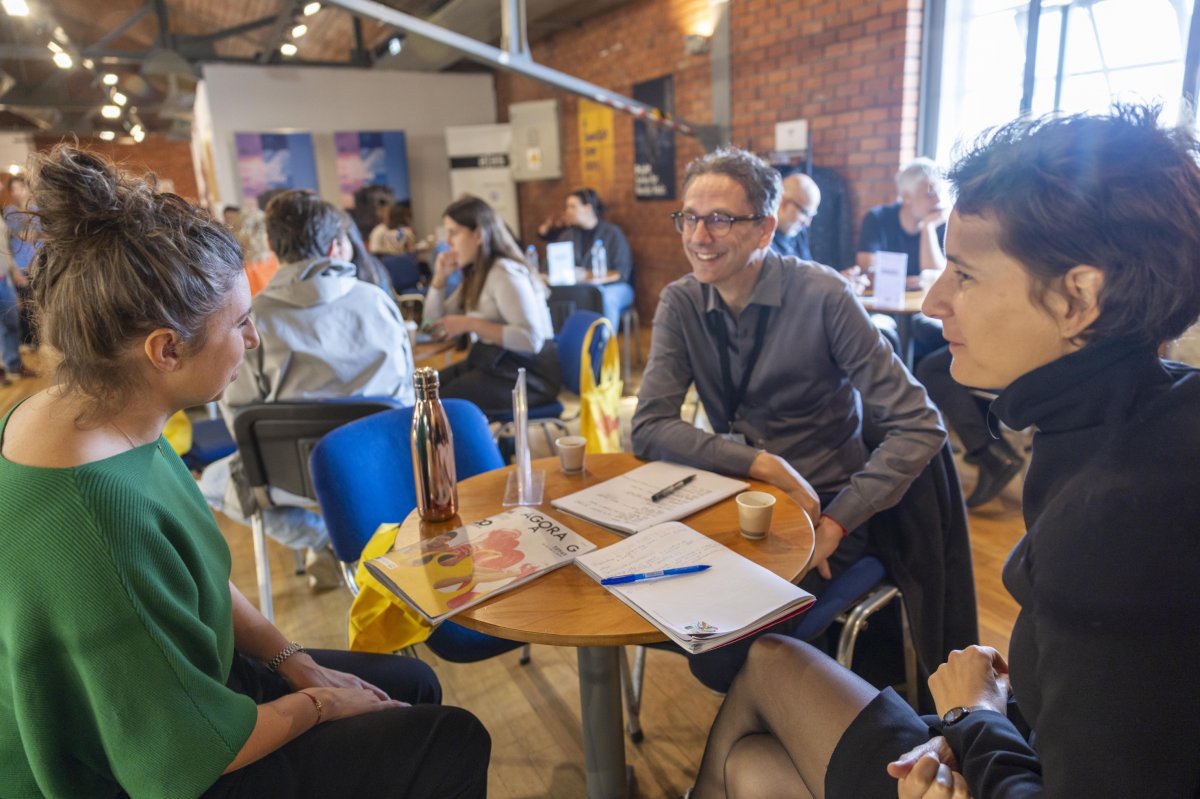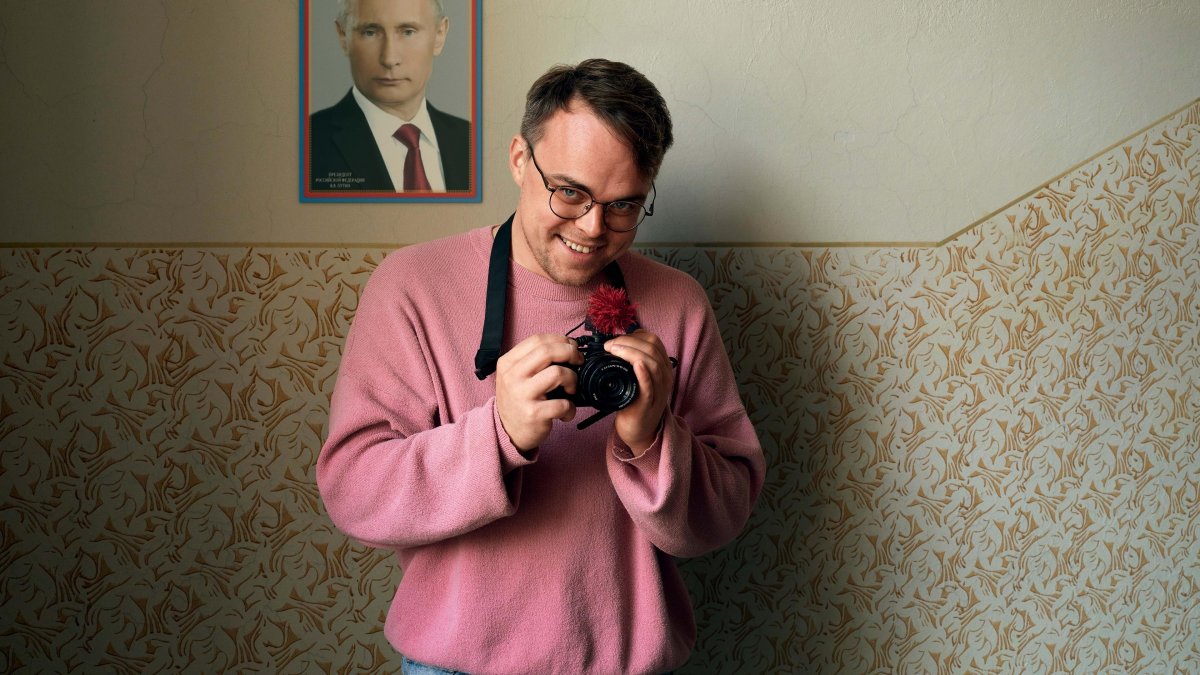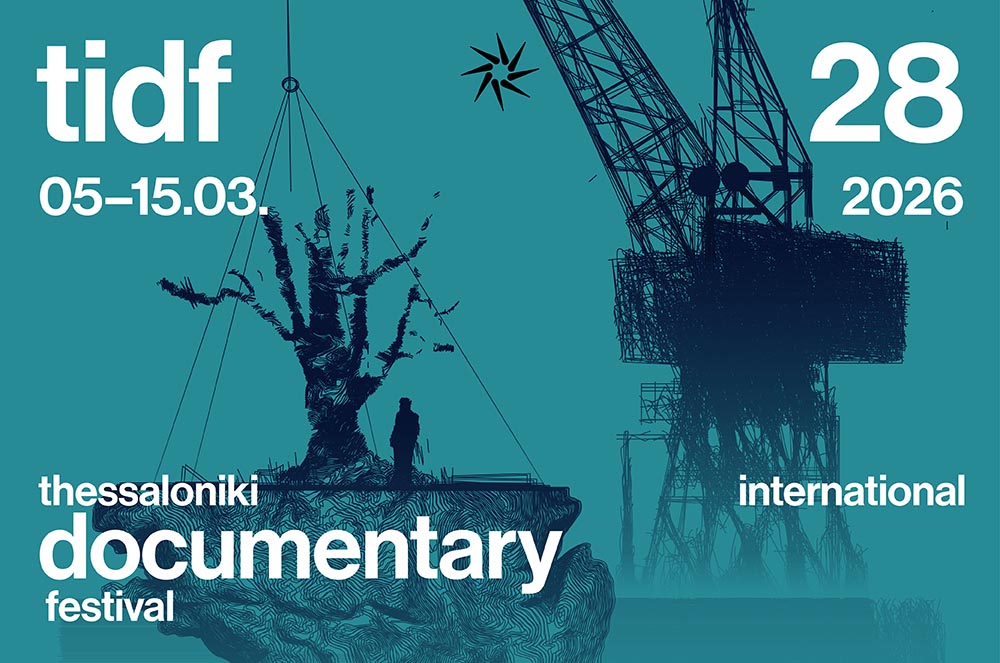INTERNATIONAL JURY PRESS CONFERENCE
The Thessaloniki Film Festival International Competition jury gave a press conference on Tuesday, November 8, at Warehouse C. This year’s jury is presided by Lawrence Kardish (Senior curator at the Department for Film and Media, Museum of Modern Art, New York) and consists of Hisami Kuroiwa (producer and sales’ representative), Frederic Boyer (Artistic Director at the European Film Festival of Les Arcs), Sitora Alieva (actress, director, film editor) and Constantine Giannaris, whose work is featured in this year’s Festival with a comprehensive tribute. The press conference was coordinated by Elena Christopoulou.
In their opening statements, jury members talked about their expectations from the 15 films participating in this year’s international competition and what they enjoy in serving as members of a jury, a role in which they are all very experienced. Mr. Kardish explained that he is fascinated by the feeling of discovery in the process of identifying and promoting new talented filmmakers. Mrs. Kuroiwa, after thanking organizers for inviting her to the 52nd TIFF, made special reference to the extensive presence of young female directors in this year’s lineup, a fact she characterized as “a new and very exciting vision”. She also expressed her delight in watching a C. Giannaris’ film for the first time. Mr. Boyer said he had already identified several promising films, and noted that the 52nd TIFF differs from other festivals in that “all interest is not exhausted in the competitive section; one can find interesting films in the general program as well, for example in the tribute to Ulrich Seidl”. Mrs. Alieva said that the being a member of the jury was a greatly enriching experience for her both on a personal and a professional level, noting that “every film is for me like a new book”. She also noted that the duty of the jurors is both serious and physically demanding. Mr. Giannaris praised TIFF director Dimitris Eipides for his excellent work and said he was happy to be a member of the jury.
Asked about whether they will be more lenient in their judgment because the films featured at the Competition Section are either debut or second films, the jurors gave varying replies. Mr. Kardish said there was no reason to give special treatment to new filmmakers, adding: “Debut films are often the best works of filmmakers. One example is Orson Welles and Citizen Kane. Therefore, I do not believe that first films are necessarily inferior compared to the others “. Elaborating on this Mrs. Kuroiwa revealed that a filmmaker’s first film is of special interest to her, and that it is quite possible that she enjoys it more than his/her second one, which is often unable to meet the initial expectations. “Personally, however, I always approach movies with my heart”, she concluded. Mr. Boyer’s take on the issue was different: “It is often said that a filmmaker’s first film does not have to be perfect. Our job is to find someone talented and award him. Besides, our ultimate goal is to see new filmmakers develop and make progress”. Mrs. Alieva made special reference to “the very strong film lineup selected by Mr. Eipides”. “Filmmakers participating in the Festival were under no pressure from producers and were therefore in a position to express themselves freely”. Mr. Giannaris underlined that he approaches all films with the same attitude, without taking into consideration the particular momentum in each filmmaker’s career.
Mr. Boyer was adamant when asked how he watches a film. “If I ever end up feeling as a professional viewer, I will call it quits. I absolutely do not intend on becoming a professional filmgoer; this is the reason I am so interested in Q&A sessions, since the questions raised often make you think and revise your views. I think it is positive to change your viewpoint and opinions with time. Therefore I believe that the whole discussion on ‘good’ VS. ‘bad’ films is of no importance. There are many films that used to be considered masterpieces only to be later demystified, and vice versa”. Mr. Kardish noted that although he cannot call himself an amateur, his intention is to watch every new film as a novel experience; he added that C. Giannaris’ short films are the ones that have so far drawn his attention, characterizing them as “fresh and quite novel”. Mrs. Kuroiwa expressed her wish “that this idea of novelty lives on, and that we are always able to discern it”. She also commended the fact that the Thessaloniki Film Festival “pays equal attention to older films and recent productions”. Mrs. Alieva focused on the role all film festivals should strive to play: “I think that all festivals should promote artistic cinema. For example, it is highly unlikely that someone is able to watch a European film in Russia today. Only a festival can offer this opportunity. Therefore, all festivals around the world could play the role of distributor of films made in the international cinema scene. For example it was very important that I was able to watch, here in Thessaloniki, new Russian films like Faust, Elena or Twilight Portrait”. Mr. Giannaris revealed that when he watches a film he does not study it as an exercise in filmmaking, but rather as a simple filmgoer waiting to see what the director has to tell him.
Jurors were then asked whether there are some basic guidelines or personal criteria they use in the process of selecting the best films of the competition. The head of the jury replied: “I operate fully on the basis of personal criteria; what I look for in every film are its expressive means, its novelty, its honesty, its consistency and cohesion”. Mrs. Kuroiwa agreed with Mr. Kardish, underlining that what is of paramount importance to her are the elements of cohesion and honesty and also that the film “does not suffer from logical inconsistencies”. On the same topic, Mr. Boyer said: “My wish is that the film takes me to an unknown place, with a surprise waiting for me at the end. Just watching a film is not enough for me; what I seek is something that will take me to a higher realm”. Mrs. Alieva said: “I would like all of us to have a long talk in our last session, where there will be some degree of objectivity that goes beyond our individual preferences. We hear a lot about jurors’ conflicts in the selection process. I have α long experience as a juror and I believe that the most important thing is to support new filmmakers”. Mr. Giannaris focused on the idiosyncratic element he seeks in every filmmaker. He is very demanding in that respect, since, as he said, “I consider it a small miracle whenever I am able to find it”.
Jurors were also asked whether they had ever had a change of heart on a movie, after deliberating with the other members. Mr. Kardish admitted this has happened, adding that everyone should be open to this possibility. Mrs. Kuroiwa concurred, adding that she enjoys listening to different opinions, since “the selection process ensures the best possible outcome”. Mr. Boyer said that “it is positive when it happens, but it is not necessary that all jurors agree”. He added that in the case of the present jury “it is certain that there will be three or four films that we will all enjoy very much, since the lineup is superb”. Mrs. Alieva gave a personal note to the discussion, saying: “I listen carefully to the arguments of my colleagues, since I have to be perceptive of all the relational complexities in both cinema and in real life”. Mr. Giannaris humorously begged to differ: “of course everybody listens; however, since I do not like diplomatic answers, what I can say is ‘you can’t teach an old dog new tricks’”.














